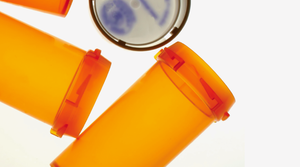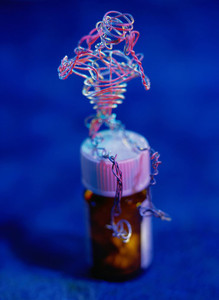On 2 October 2019, the US Food and Drug Administration (FDA) declared that it had found ‘unacceptable’ levels of the probable human carcinogen N-nitrosodimethylamine (NDMA) in the heartburn drug Zantac (ranitidine) and its generic versions.
Ranitidine is an over-the-counter and prescription drug used by millions of people worldwide as a treatment for gastrointestinal disorders. On 26 September 2019, the European Medicines Agency (EMA) and FDA began investigating the safety of ranitidine after online pharmacy Valisure flagged that NDMA was present in ‘extremely high levels’ in every ranitidine batch it tested [1]. FDA’s daily intake limit for NDMA is 96 nanograms, and Valisure claimed that it had detected levels in excess of three million nanograms per tablet. Valisure has petitioned FDA to recall and suspend sales of all ranitidine-containing products in the US.
Following preliminary tests it conducted in September 2019, FDA said that the levels of NDMA in ranitidine ‘barely exceed amounts you might find in common foods’. However, more recent FDA ‘limited testing’ discovered unacceptable levels of NDMA present in the medication. FDA is continuing to test ranitidine products from multiple manufacturers, and has asked manufacturers to conduct their own tests in line with recent EMA guidance [2]. The quantities of NDMA in ranitidine that FDA found using its low-heat testing method were much lower than those discovered with the high-temperature method used by Valisure. FDA is recommending that manufacturers follow its lead and use a low-heat method of testing ranitidine, as it says the high-temperature test employed by Valisure actually generates NDMA and so displays much higher levels of the impurity. Valisure accepted that the method it used may have resulted in findings of higher NDMA levels but highlighted an analysis it conducted in conditions similar to the human stomach which generated over 300,000 nanograms of NDMA. David Light, Valisure’s Chief Executive, said this shows that even if the pills are not contaminated, they are likely to form the impurity in patients’ stomachs after ingestion.
While FDA has not publicly sought recalls, several manufactures and three of the largest pharmacy retailers in the US have decided not to take any chances. CVS has suspended sales of all Zantac brand and CVS Health brand ranitidine products. Walgreens, Rite Aid and Walmart have followed suit. These decisions followed recalls by drugmakers globally. GlaxoSmithKline, the original developer of Zantac, does not sell ranitidine products in the US but began removing them from markets where it does. Sandoz, Apotex, and Dr Reddy’s Laboratories began pulling their ranitidine products from the US market and elsewhere. Sanofi, the current owner of the Zantac brand, has not recalled its product in the US, only in Canada where regulators have requested that the drugs are removed. Sandoz has now recalled all quantities of ranitidine hydrochloride capsules from the US market. This was extended from its initial recall of ‘several batches’ of its ranitidine film-coated tablets across ‘a number of markets’.
In addition to Canada, regulators in Germany, South Korea, and Bangladesh have asked for temporary recalls of ranitidine products until further testing.
This NDMA contamination of ranitidine case has prompted lawsuits. The same day that EMA and FDA issued their public statements following the initial Valisure alert of ranitidine contamination in September 2019, a lawsuit was filed in the US District Court for the Northern District of California against Zantac manufacturers. The lawsuit filed by Hagens Berman accuses Sanofi and Boehringer Ingelheim of ‘knowingly manufacturing and selling over-the-counter Zantac containing a concealed carcinogen to millions of people in the US’. This case is an extension of the ongoing investigation into how ‘sartan’ medications came to be contaminated by dimethylformamide (DMF), N-nitrosodiethylamine (NDEA), N-nitroso N-methyl 4-aminobutyric acid (NMBA) and NDMA [1].
Sanofi is also being sued by two people in South Florida who have developed breast cancer.
References
1. GaBI Online - Generics and Biosimilars Initiative. Carcinogen contamination halts distribution of generic Zantac [www.gabionline.net]. Mol, Belgium: Pro Pharma Communications International; [cited 2019 Oct 18]. Available from: www.gabionline.net/Generics/General/Carcinogen-contamination-halts-distribution-of-generic-Zantac
2. GaBI Online - Generics and Biosimilars Initiative. EMA provides guidance on avoiding nitrosamines in human medicines [www.gabionline.net]. Mol, Belgium: Pro Pharma Communications International; [cited 2019 Oct 18]. Available from: www.gabionline.net/Guidelines/EMA-provides-guidance-on-avoiding-nitrosamines-in-human-medicines
Permission granted to reproduce for personal and non-commercial use only. All other reproduction, copy or reprinting of all or part of any ‘Content’ found on this website is strictly prohibited without the prior consent of the publisher. Contact the publisher to obtain permission before redistributing.
Copyright – Unless otherwise stated all contents of this website are © 2019 Pro Pharma Communications International. All Rights Reserved.








 0
0











Post your comment